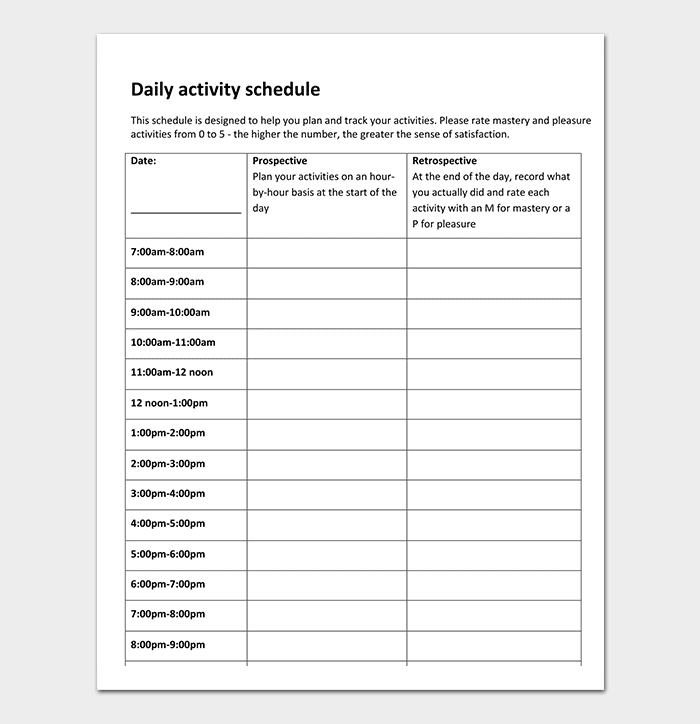24 Hour daily agenda (30 minute blocks)
This was from David Burns Feeling Good and I found it quite useful at various points. Basically:
1 Use a form or make your own spreadsheet with all 24 hours of the day covered but split up even further into 30 or 15 minute blocks. It also has a section to report what you scheduled vs what you ended up doing
2 Brainstorm all the things you need or would like to get done and give a time estimate for each based on how long its taken you ideally in the past
3 Schedule each item based on how much effort/complexity it requires (earlier = more complex/energy-intensive) and make sure the tasks are spaced so that there is enough time and a little buffer for breathing room (based on your durations)
Sorta looks like this, can’t seem to find the original necessarily but you get the point

Very useful and practical tool
Please name the tool/exercise and limit to CBT for this thread (I want to cover and discover others in future topics focused on them). I really want to avoid boilerplate namedropping “this or that therapy but you’d have to pay to see a therapist, you wouldn’t understand”. That just not helpful, please elaborate Any pedantic replies not answering question won’t be entertained


The Insomnia Coach App. It’s a completely free app on iOS and Android for tracking your sleep and developing the tools and habits for getting a full night’s rest. It’s a CBT-based app with a sleep diary, weekly training plan, and tools like guided meditation.
Weirdly it’s developed by the US Department of Veteran Affairs, which explains why it’s free and there’s no in-app purchases. Nothing about it is specific to veterans, and it’s one of the most commonly recommended apps for dealing with insomnia.
I can vouch that it helped reduce the frequency of sleepless nights for me, and I’d highly recommend it to anyone unfortunate enough to be dealing with insomnia.
I’ve seen VA support of CBT in several avenues. I wonder if it’s just the visibility I happen to have to it or if they really do use it as their preferred treatment type.
Its definitely the most scalable which makes sense and demographically its probably the most vanilla so it can be tolerated by the most diverse range of people
They have several interesting apps